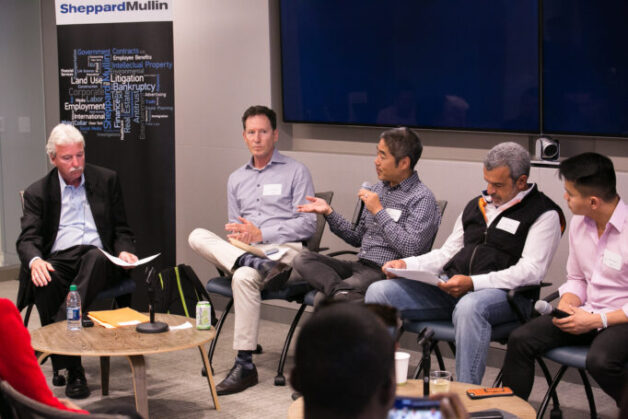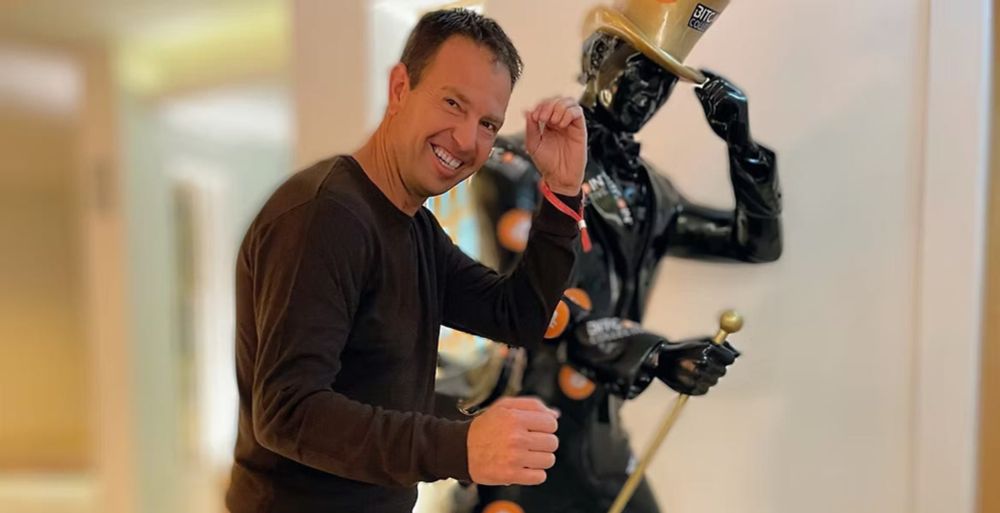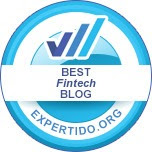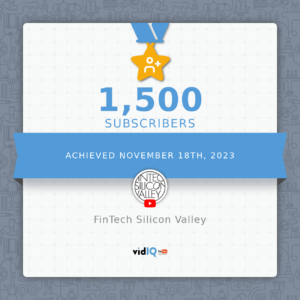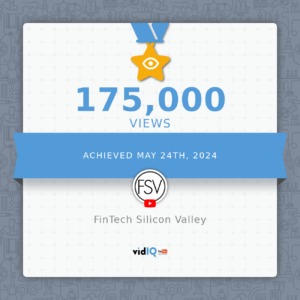The V Word- Volatility
Miko Matsumura, Founder Evercoin said “it might seem like there’s a warning that winter is coming”, and went on to describe that we are experiencing a cryptocurrency ice age. It’s a time of washing out weak hands. Even if a lot of tokens don’t survive, the coins that do survive will be extraordinarily strong. He reminded us that “investors need to be smarter, and more selective, and more diversified”. Some investments will turn out very good, and investors need to practice good habits.
Kendrick Nguyen, Co-Founder/CEO Republic emphasized that there is a lot of potential long term, and that we’re probably going through a natural cycle of volatility for a nascent industry.
David Blumberg, Founder/Managing Partner Blumberg Capital chimed in to remind us about the difference between traditional venture capital and the token economy. He remarked “Traditional venture capital is really about building companies and supporting entrepreneurs to build long-term value”. He went on to say that there are some good things and bad things about volatility in the token market, but traditionally that’s not what venture capitalists and entrepreneurs are looking for when investing.
Ben Narasin, Venture Partner NEA pointed out that he believes we are currently in “a speculators market and not an investor’s market right now”, so it’s not necessarily a bad thing. He illustrated how investing in a lot of these coins is similar to investing in the old penny stocks. When Bitcoin hit almost 20K at the end of 2017, “suddenly everybody and their grandmother” was interested in it. It’s not traditionally what early stage investors are looking for. Overall volatility is a bad thing, especially for traditional investors, but it works for speculators in some cases. Investing is a long-term game and it should come from a lot more than just capital.
MODERATOR: Silicon Valley journalist Mark Albertson this live streamed discussion. Mark explained that the man thing that concerns investors about security tokens is volatility. August 2017 was a roller coaster of volatility, and the token market lost 43 billion in a five-day period. Mark started off the panel by asking them, “is now a time to panic or is this just a natural cycle?”
Security and Utility Tokens- What’s the difference?
Security Tokens are commonly defined as “any blockchain based representation of value that is subject to regulation under security laws.” A Security Token can be found by employing the Howey Test. Pierre-R. Wolff, VP Tierion explained that a lot of people misunderstand the term ‘utility token’, but securities definitely take on a more traditional role as a more stable asset class. Once the rules between securities and utilities get clarified we will see the tokens “behaving very differently”.
Kendrick emphasized that it’s pretty much generally accepted that there is “no such thing as a new token that is not a security token unless it is completely stable, or that you can use it for consumptive purposes” (meaning you use it and burn it). “If a token fluctuates, or will fluctuate, and people buy it hedging on the upward fluctuation, it is considered security.” Miko interjected to say that there’s a lot of confusion between the terms ‘securities’ and ‘utility’ tokens. “If you think there is a thing called the utility token that’s not a security, nine times out of ten you’re gonna go to jail”.
Is Venture Capital being Disrupted?
This is the age of the security token, but at the same time it appears to be a legitimate funding mechanism disrupting venture capital. Mark asked the panelists, “What’s your take on that? How is this playing out as you see it right now in the venture capital community?”
Kendrick shared that he does indeed think that token fundraising or token sales is venture capital. Venture capital is just “financing an early stage project.” A lot of new companies are tech companies that want to incorporate blockchain into their business structure. However, a lot of venture capitalists are constrained by their LP agreement (Limited Partnership Agreement) and they cannot deploy capital into their token sales. On the other hand, we start to see the tokenization of VCs, which would make it easier for them to fundraise.
Ben described how lawyers will opine on whether an ICO or a token is an equity-like instrument, and has heard them opine in both directions. He went on to say if he’s advising an entrepreneur, he thinks it’s better to avoid any type of big risk, and emphasized that the government “has an insanely long memory”. Some companies go slowly due to regulations, and they want to be very careful because if not, they could risk jail time. Traditional venture funding often takes ten to twelve years to mature, and things can get confusing if a venture capital invests in a company that later does an ICO, since that could change the nature of the company.
David pointed out that there is “value in giving entrepreneurs time”, and not being in the bright glare of corporate quarterly reporting.

Are VCs ready for Disruption?
The media keeps proclaiming that venture capital is going to be disrupted. Get ready for it. Mark asked the panelists, “So what should the venture communities’ response be?”
Pierre explained that the many benefits that venture capital brings to the table is very hard to disrupt for a variety of reasons. Ben gave an anecdote describing how dealing with VCs and how following lead investors can add enormous quality to investors. That kind of confidence is probably something that you wouldn’t see from a “free-form crowdfunding style model, whether that’s ICO, VC or AngelList.”
Kendrick elaborated on this point and said “I still want fundraising. I don’t think it’s disrupting venture capital as much as enhancing the ecosystem for all participants all around”. He explained that the role of venture capitalists, and venture funds cannot be displaced in that. With capital comes what is even more valuable, and that would be the network, the advice, etc. for years to come.
David also pointed out that venture capitalists are a lot more than just the money, and he shared a poignant story illustrating that there is definitely a lot of value beyond the money:
There’s a famous story of a VC going to the Silicon Valley, who early on wanted to invest in a young software company. The entrepreneur didn’t want to meet him. So, the VC phoned the secretary of this entrepreneur, found out when he was flying back to visit the Silicon Valley, bought a ticket, and finagled his way with the desk help to get to sit directly next to this entrepreneur.
The entrepreneur sitting there going like, “Why are you harassing me like this? I know you want to invest in my company, but I don’t need the money. I’m already cash flow positive. I don’t need it”.
The investor said, “I want to invest in your company. I know you don’t need my money, you need me. You need my time, my help, my advice.”
That was Dave Mark Barton. The entrepreneur was Bill Gates. The company was Microsoft. Bill Gates took the money. Didn’t need it, but took it. It was a super productive and long relationship. So, there is definitely value beyond the money.
The Regulatory Question?
Mark addressed the elephant in the room and asked the panelists “Where does the regulatory picture stand in your view? Do you think that could be a problem down the line?”
Kendrick described how he’s been very involved in trying to navigate and understand the changing regulatory framework as applied to cryptocurrency. “It’s the lack of clarity, and I think it’s a major problem for entrepreneurs”. Pierre explained “there is a whole lot of stuff that’s undefined”. He believes there will be a little bit more chaos and mess, however there is clarity in the sunset. Miko added “there is censorship resistance with respect to things like domicile competition”. He believes that global AML (anti-money laundering) is coming, and feels that KYC (know your customer) and AML will be non-negotiable planet-wide.
David pointed out that regulatory arbitrage, and the uncertainty is very problematic, though it can work in places like Venezuela. For those who want to be serious investors, “certainty is good, and a bit more transparency”. It’s important that we understand the rules, “because it’s too fuzzy, it’s too quick-sodded right now”. Ben added that the decision you make for how to fundraise is one that only you can make. “It’s gonna be made on a whole lot of different criteria including return horizons, and return beliefs. If that serves your needs, that’s great. I’m not negative on that at all”.
This panel took place Tuesday, August 21, 2018 and was hosted by Tobin Dommer, Partner Sheppard Mullin and Pemo Theodore Founder/CEO & Executive Producer FinTech Silicon Valley to discuss the interplay between traditional Venture Capital, and the new funding models known as Fintech, Blockchain, and the Token Economy.
Guest Post by Karen Holleran November 2018
